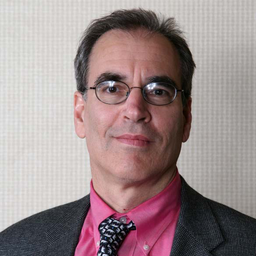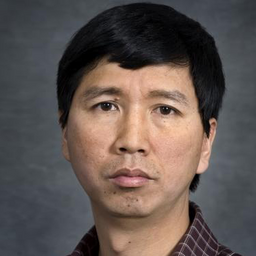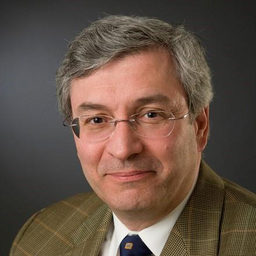
Umberto Berardi
Dr. Berardi is Canada Research Chair in Building Science, Full Professor, and Director of the BeTOP center at Ryerson University in Toronto, Canada. His main research interests are related to the study of innovative solutions and new materials for improving the performance within the built environment. In the first years of his career, Dr. Berardi often worked on natural materials for acoustic applications and on sustainable design through natural materials. Recently, he has been focusing on integrating nanotechnologies into building systems. He has mainly focused on organic PCMs, such as paraffin and bio-PCM, and on granular and monolithic aerogel.
Dr. Berardi has an extensive publication record, including 150 peer-reviewed journals, 130 international conference papers, and five books. Notable highlights include 4 articles in Renewable & Sustainable Energy Reviews (2020 Impact Factor: 14.982); 1 in Chemical Engineering Journal (IF: 13.273); 2 in Journal of Hazardous Materials (IF: 10.588); 1 Business Strategy and Environment (IF: 10.302); 1 in Resource Conservation and Recycling (IF: 10.204); 4 in Applied Energy (IF: 9.746); 1 in Environment international (IF: 9.621); 1 in Journal of Cleaner Production (IF: 9.297); 2 in Science of the Total Environment (IF: 7.963); 3 in Sustainable Cities and Society (IF: 7.587); 3 in Energy (IF: 7.147); 1 in Environmental Research (IF: 6.498); 1 in Journal of Environmental Management (IF: 6.789); 5 in Building and Environment (IF: 6.456); 1 in Energy Policy (IF: 6.142); 1 in Sustainable Development (IF: 6.159); 1 in Journal of Industrial and Engineering Chemistry (IF: 6.064); 20 in Energy and Buildings (IF: 5.879); and 1 in Applied Thermal Engineering (IF: 5.295).
Dr. Berardi’s publications have received 11,500 citations in Google Scholar, where he has an h-index of 47, while Scopus database counts over 7,000 citations and an h-index of 40. He is the author of the most read paper ever in Architectural Science Review; the most-cited and most-read paper in the International Journal of Sustainable Building Technology and Urban Development; the most cited paper in Applied Acoustics and in Sustainable Development; the second most cited paper in the journal Sustainable Cities and Society; one of the ten most downloaded articles in Renewable and Sustainable Energy Reviews in 2014. At the International Conference on Applied Energy in 2016 in China, he was awarded as the author of one of the ten most cited papers in the journal Applied Energy.
Dr. Berardi was the Chair of the conference X IAQVEC 2019 (10th Int. Conference on Indoor Air Quality, Ventilation and Energy Conservation in Buildings) in Bari, Italy, which attracted 400 attendees from 90 countries. Moreover, he was the International Committee Chair of the International Conference on Sustainable Design, Engineering and Construction (ICSDEC) 2016 in Tempe (Arizona), and the Technical Program and Leadership Committee Chair of ICSDEC 2015 in Chicago (Illinois). He has been a member of the scientific committee of over 40 international congresses held in 30 countries and has often organized and chaired special sessions. He has also given keynotes at several conferences.
Dr. Berardi contributes to several academic and scientific communities. He is the Editor-in-Chief of the Journal Canadian Acoustics, and he has been the editor of several special issues for journals such as Energy and Buildings (twice), Journal of Building Performance Simulation, Science and Technology for the Built Environment, Building Simulation, Sustainable Cities and Society, Buildings, Sustainability, and Advances in Mechanical Engineering. He is a member of the editorial board of the following journals: Energy and Buildings, Sustainable Cities and Society, Journal of Building Performance Simulation, Building Simulation, Sustainable Development, Intelligent Building International, Buildings, Sustainability, and Energy and Policy Research. He has acted as a reviewer for over 100 journals and has been recognized as an Outstanding Reviewer for over 20 journals, including Building and Environment, Energy and Buildings, and Sustainable Cities and Society. He is the Associate Editor of the Journal of Building Engineering.
His awards include (among others): the 10th Canada's Clean16 award and Clean50 winner (list category: R&D), 2021; the 2020 European Thermophysical Properties ECTP-NETZSCH AWARD; the Young Researcher Award by the AIGE in 2019; Early Research Career Excellence Award, Ryerson University, 2018; the Best Italian Engineer in North America award by the ISSNAF (Italian Scientists and Scholars in North America Foundation) in Washington in October 2016; among others.
Dr. Berardi has a body of funded research comprising over $2.5M in government and private sector sponsored research. He has been awarded a CFI-JELF; NSERC Discovery Grant; Early Research Award from the MRI - Ontario; Building Excellence Research and Education Grants from the BC Housing - Homeowner Protection Office; OCE-VIP projects; Ryerson Research Fund for Tools and for Undergraduate Research Experience and several NSERC Engages.
Sessions in which Umberto Berardi participates
Wednesday 27 July, 2022
An Investigation on the Influence of Neighbourhood Morphology on Outdoor Thermal Comfort in Toronto’s Public SpacesFPHasan, Javeriya; Horvat, MiljanaHasan, JaveriyaIntegrated Statistical–Simulation Approach to Improve Heat-Related Health, Environmental, and Urban Energy ResponsesFPDardir, Mohamed (1); Berardi, Umberto (2); Wilson, Jeffrey (...
A survey of the impact of acoustic environment on occupants’ satisfaction in open-plan officesFPKang, Shengxian (1);Mak, Cheuk Ming (1);Ou, Dayi (2,3,4)Kang, ShengxianThermal performance of green and cool roofs: a field experiment combining night ventilationFPRan, Jiandong (1);Feng, Ya (1,2,3);Tang, Mingfang (1,3);Jiang,...
An experimental and numerical study of football stadium ventilation to reduce aerosol concentrations and COVID-19 transmissionISBert BlockenCFD analysis of airborne sea salt adhesion related to corrosion damage in a large sports stadiumEAYoshihide TominagaHow climate changes require to design buildings differently
Thursday 28 July, 2022
Agent-based Decentralized Energy Management with Distributed Intelligence for HVAC ControlFPHussain, Syed Asad (1); Jayasena, Amindha (1); Wang, Lan (2); Lee, Eric Wai Ming (3); Kwok Kit Yuen, Richard (3); Sadiq, Rehan (1); Hewage, Kasun (1)Hussain, Syed AsadSocio-technical challenges to operational energy management in buildings: Semi-structured interviews with two faci...
Sessions in which Umberto Berardi attends
Monday 25 July, 2022
Tuesday 26 July, 2022
Dr. Leon Wang (General President of COBEE 2022 / Président général COBEE 2022)Dr. Graham Carr (President of Concordia University / Président de l’université Concordia)Mme Kaïla Munro (City of Montréal/ Ville de Montréal)Dr. Andreas Athienitis (Director...
Matthaios Santamouris, Ph.D.Urban Overheating and Its impact. Recent Progress on Mitigation TechnologiesRegional climate change in cities is the most documented phenomenon of climate change. Higher urban temperatures are documented e...
A Universal Method for Meeting a Wide-Scale Heat Demand via District Heating Networks.FPStrzalka, Aneta; Böhnisch, HelmutStrzalka, AnetaDeveloping and Calibrating a Cost-Effective Method to Determine the Window-to-Wall Ratio and Air-Conditioning Status of Existing BuildingsFPPhilip, Abraham; Pathak, Bhavya Swapneel; Gandhi, Shaily; Rawal, R...
Fire risks of renewable energy technologies in buildings: Analysis of fire effluents for smoke and toxicant detectionFPYoon Ko, Oluwamuyiwa Okunrounmu, Monireh Aram, Dahai QiMonireh AramEvaluating Experimental Methods for Measuring the Specific Heat Capacity of Building MaterialsFPWard, Colin;Baldwin, Christopher;Treichel, Calene;
Advances in Urban Wind Environment Simulations Yoshihide Tominaga, Niigata Institute of TechnologyModeling Building Stock in Cities Tianzhen Hong, Lawrence Berkeley National LaboratoryMultiscale Modeling of Urban Environment Performance Leon Wang, Concordia University
Towards embedded controls for advanced double skin facadesFPGennaro, Giovanni (1,2);Favoino, Fabio (1);De Michele, Giuseppe (2);Goia, Francesco (3);Perino, Marco (1)Gennaro, GiovanniNumerically Modelling the Hygrothermal Response to Air Movements in Wall to wall JunctionsFPDelgadillo Buenrostro, Leonardo (1);Gosselin, Lo...
SOLAR BUILDINGS AND STRUCTURAL WIND RESILIENCE IN WIND CODES AND STANDARDSFPAlrawashdeh, Hatem;Stathopoulos, TedHatem AlrawashdehFeasibility of using solar PV and solar thermal energy in high-rise commercial buildingsFPShirinbaksh, Mehrdad;Harvey, L.D. DannyMehrdad ShirinbakshDecarbonizing the N...
Meet at the information desks in the JMSB atrium at 5pm.Refer to the Technical Tours page for further details on the tour.
Wednesday 27 July, 2022
Colleen S.L. Mercer Clarke, M.Sc., M.L.A., Ph.D., FCSLA/APALAThe Nature of Progress: How Working to Integrate Society with Environment will Transform our Society and our Future. Increas...
Global and Regional climate change : impact on energy consumption. The potential of mitigation and adaptation technologiesISMat SantamourisA new model for typical building electricity use profile generation to support renewable energy system design and smart grid integrationISDa YanA building energy flexibility model to ...
Thursday 28 July, 2022
Tianzhen Hong, Ph.D.Decarbonization of Buildings: Strategies Integrating Energy Sufficiency, Efficiency, Flexibility, and Resiliency.Globally buildings consume more than one-third of primary ener...
How will mechanical night ventilation affect the electricity use and the electrical peak power demand in 30 years? – A case study of a historic office building in SwedenFPBakhtiari, Hossein; Sayadi, Sana; Akander, Jan; Hayati, Abolfazl; Cehlin, MathiasBakhtiari, HosseinAssessing the Thermal Resilience of Multiple Outage Events using a Multi-Objective Optimization Analysi...
Optimizing Mechanical Ventilation Systems for Wildfire Smoke Resilience in British ColumbiaFPDsoza, Aaron; Zhong, LexuanZhong, LexuanAn activity-based spatial-temporal urban electricity vulnerability assessmentFPXia, Chen (1); Hu, Yuqing (1); Chen, Jianli (2)Chen XiaResilience and Climate Change: How a ...
Meet in front of the Hall building - 1455 blvd. de Maisonneuve. Shuttle bus will be stationed in front of the Henry F. ...
Friday 29 July, 2022
Michael A. Lacasse, Ph.D. P.Eng.Nature-based Solutions for Buildings and CommunitiesCanada is warming at double the rate of the global average caused in part by a fast-growing population and exte...
Thermal and Optical Performance of Advanced Polycarbonate Systems with Granular Aerogel and Hollow Silica PowderFPmerli, francesca (2);zinzi, michele (1);buratti, cinzia (2);Augello, Andrea (4);takeshi, Ihara (3)Zinzi, MicheleExpanded Polypropylene as Structural and Thermal Component of Panelized Wall SystemsFPTam, Claire (1...
Impacts of Collective Communication on the Energy Flexibility and Climate Resilience of Buildings in Urban AreasFPNik, Vahid M.Vahid NikGrasshopper Optimization Algorithm vis-a-vis Genetic Algorithm for Energy Optimization in Conditioned Buildings with Varying Hours of Occupancy in Composite Climate of DelhiFPAli, Sana Fatima (1);Bhatta...
























